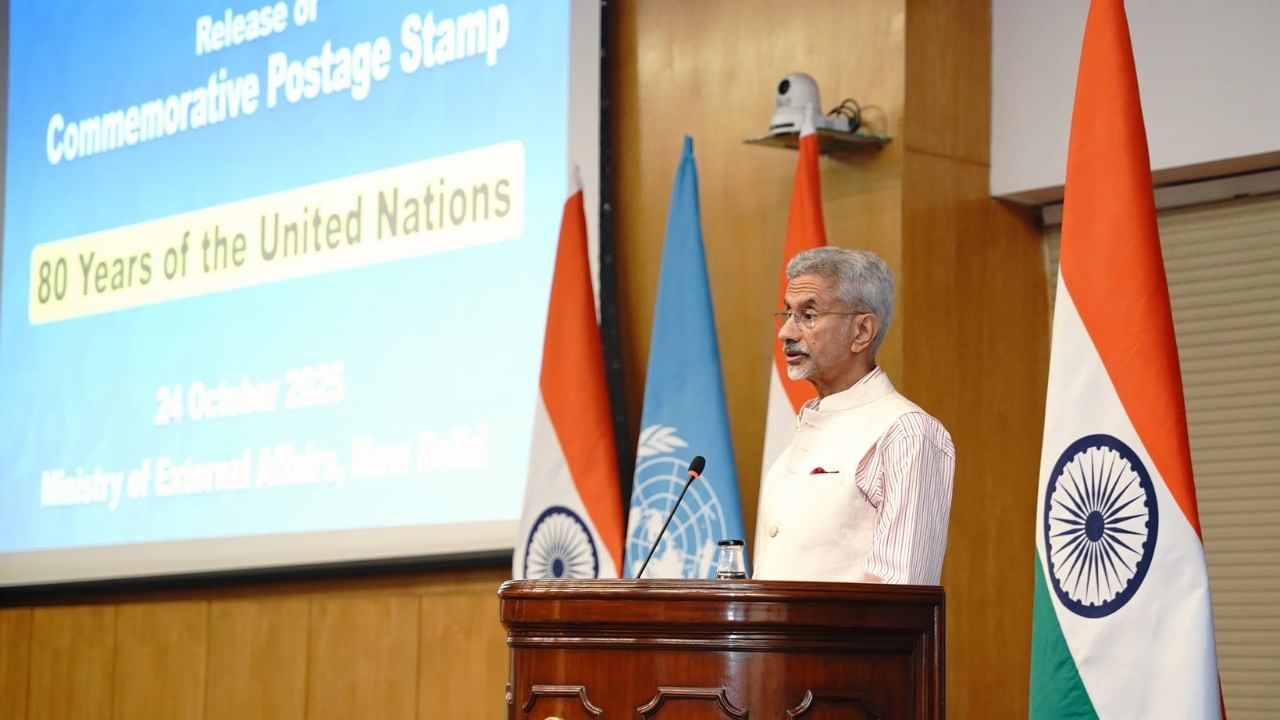New Delhi: India on Friday cited Pakistan’s attempts to protect at the UN Security Council the terror outfit that claimed responsibility for the Pahalgam attack to point out that the global body’s work has been “gridlocked” in the absence of urgent reforms.
External Affairs Minister S Jaishankar also criticised those equating victims and perpetrators of terrorism in the name of global strategy, in an apparent reference to hyphenation of India and Pakistan in the context of the dastardly terror strike.
Jaishankar was speaking at an event that celebrated the 80th anniversary of the United Nations (UN).
In his remarks, the external affairs minister said “all is not well” with the UN as its debates have become “increasingly polarised” and its working “visibly gridlocked”.
“Any meaningful reform is obstructed using the reform process itself,” he said adding sustaining the UN even while seeking its re-invention is clearly a major challenge before the world.
“Few examples are more telling about the challenges facing the UN than its response to terrorism. When a sitting Security Council member openly protects the very organisation that claims responsibility for the barbaric terror attack such as at Pahalgam, what does it do to the credibility of multilateralism,” Jaishankar asked.
Though Jaishankar didn’t directly name Pakistan, it was abundantly clear from his remarks that he was referring to that country.
“Similarly, if victims and perpetrators of terrorism are equated in the name of global strategy, how much more cynical can the world get. When self-proclaimed terrorists are shielded from the sanctioning process, what does it say for the sincerity of those involved,” he said.
Pakistan is currently a member of the UN Security Council. It was the chair of the top global body in the month of July.
The Council comprises 15 members, including five permanent members which are China, France, Russian Federation, the United Kingdom, and the United States.
Ten non-permanent member nations are elected for two-year terms by the General Assembly. The presidency of the UNSC is held by each of the members in turn for one month.
The Resistance Front (TRF), a proxy of the Lashkar-e-Taiba (LeT) terror group, had claimed responsibility for the Pahalgam terror attack.
TRF found mention in a UNSC report in July for its role in the Pahalgam attack.
Pakistan had attempted to remove references to TRF in the UNSC press statement condemning the Pahalgam attack, according to officials.
In his remarks, Jaishankar suggested that the UN has failed to address pressing issues.
“If the maintenance of international peace and security has become lip service, the predicament of development and socio-economic progress is even more serious,” he said.
“The slowing down of the SDG Agenda 2030 is a significant metric to measure the distress of the Global South. There are many more, whether it is trade measures, supply chain dependence or political domination,” he said.
“Yet, on such a notable anniversary, we cannot abandon hope. However difficult, the commitment to multilateralism must remain strong. However flawed, the United Nations must be supported in this time of crisis,” Jaishankar added.
The Sustainable Development Goals (SDGs) are a set of goals set to achieve a better and more sustainable future for all.
